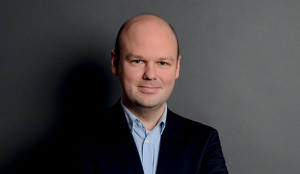Year in Review: notable 2020 patent cases in Germany
Bird & Bird’s IP lawyers summarise some of the most notable patent decisions in key jurisdictions in Europe for 2020. This report focuses on Germany.
Compulsory licence defence under antitrust law – FRAND-Einwand I (Federal Court of Justice)
This was a landmark Federal Court of Justice decision considering the CJEU’s ruling in Huawei v ZTE (Case C-170/13). Among other issues, it considered and applied the provisions of Article 102 paragraph 2 (a) and (b) of the Treaty on the Functioning of the European Union.
First, the assertion of the claims for an injunction, recall and destruction of the infringer’s products by the owner of an SEP may constitute an abuse, if it has not enabled the willing infringer to sign a licence agreement on reasonable terms.
Second, the claimant must help draft the terms of such an agreement if an information asymmetry among the would-be parties demands it. Third, it must provide sufficient transparency for the infringer to understand the amount of the proposed licence fee. Fourth, combining SEPs and non-SEPs in a licence is not, in principle, a breach of antitrust law provided that no payment is demanded for the use of the non-SEPs.
Finally, the infringer may defend himself in an infringement suit by invoking its right to a FRAND licence from the patent holder.
Balance of interests when negotiating a FRAND licence – FRAND-Einwand II (Federal Court of Justice)
As a follow-up to its FRAND-Einwand I decision, the German Federal Court of Justice elaborated on its interpretation of European antitrust legislation regarding SEPs.
The owner of an SEP who brings a patent infringement action does not abuse its market power if the infringer, aware of the infringement and the owner’s willingness to license, has not unequivocally indicated that it will seek a licence on FRAND terms.
Both parties are required to contribute in good faith so that an appropriate balance of the conflicting interests can be negotiated in the form of a licence agreement on FRAND terms.
Outside the scope of application of the protection of succession under Section 15 III of the German Patent Act, objections which were available to a user of the invention against the former patentee cannot be raised against its successor in title. This applies particularly to the objection of patent ambush.
Application of principle requiring all claims to be brought together in a second patent infringement action – Fensterflügel (Federal Court of Justice)
The Federal Court of Justice clarified the exceptional nature of Section 145 of the German Patent Act and its narrow scope of application. In addition, the court provided legal certainty by clarifying that a claimant does not have to assert all claims arising from an IP right against similar embodiments in a single lawsuit.
Section 145 of the German Patent Act precludes any further infringement suit from being brought if it is based on the same or an equivalent patent and not raised in the previous infringement suit. The court ruled that the provision is not applicable in cases where a different embodiment is alleged to infringe the same patent in subsequent infringement proceedings and nor should the underlying principle of Section 145 be applied by analogy.
Whether the infringement action was inadmissible due to infringement proceedings previously based on the same patent against the same defendants was to be assessed according to the general provisions of the German Code of Civil Procedure relating to lis pendens or res judicata (a matter judged).
Since the second embodiment was not the subject of the earlier legal dispute, there was no legal force to the claim to lis pendens under the German Code of Civil Procedure.
Requirements for equal effect in the case of an embodiment with a deviating design form – Kranarm (Federal Court of Justice)
The Federal Court of Justice affirmed its case law regarding the interpretation of the equivalent infringement criterion of the “same effect” (Gleichwirkung). The patent in suit related to a crane arm with an attachment device for implements.
The court held that an embodiment which had a deviating design instead of a feature provided for in the patent claim could not automatically be regarded as having the same effect…




